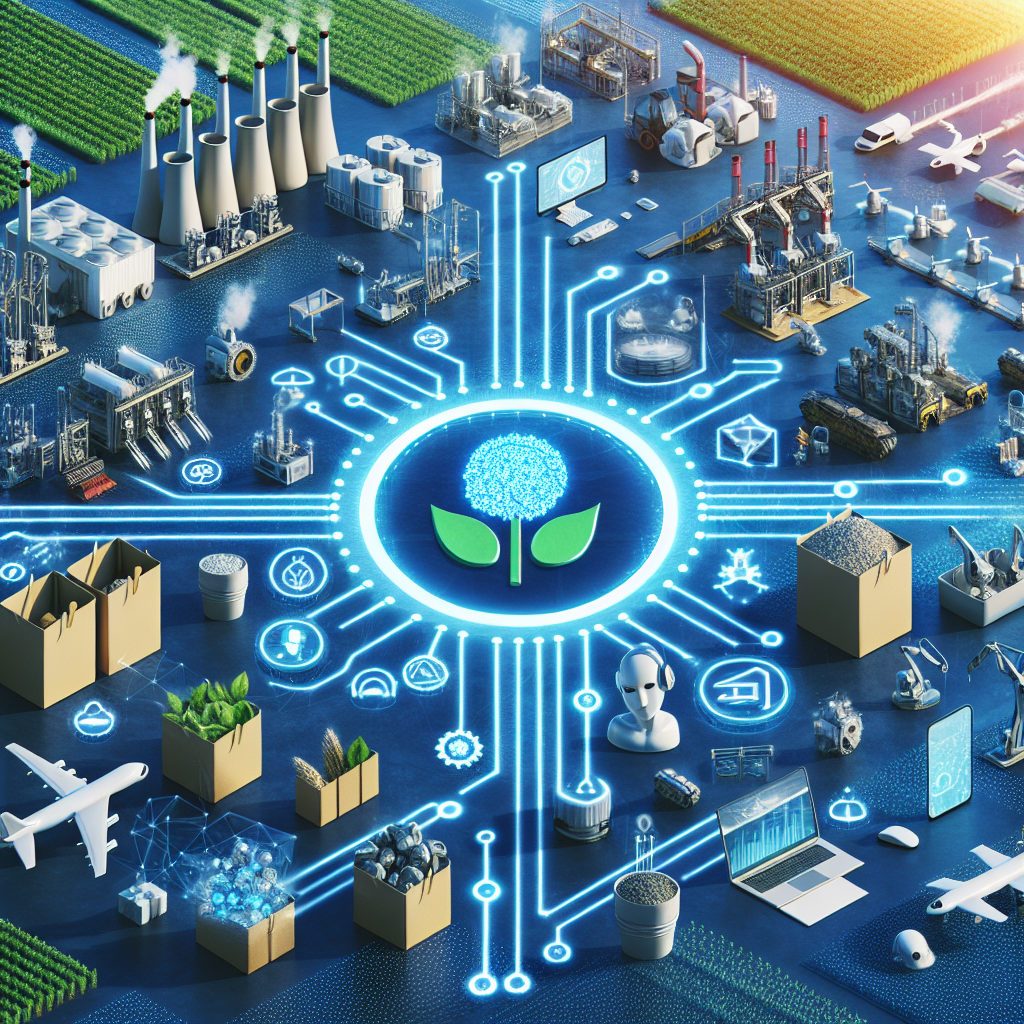Harnessing AI for Sustainable Supply Chain Management
Introduction
In recent years, artificial intelligence (AI) has become increasingly prevalent in businesses across various industries. AI has the potential to transform supply chain management by optimizing processes, improving efficiency, and reducing costs. In addition to these benefits, AI can also play a crucial role in promoting sustainability within supply chains. By leveraging AI technologies, companies can reduce their environmental impact, promote ethical practices, and ensure the long-term viability of their operations.
In this article, we will explore how AI can be harnessed for sustainable supply chain management. We will discuss the various ways in which AI can be used to promote sustainability, as well as the challenges and opportunities that come with implementing AI in supply chain operations.
The Role of AI in Sustainable Supply Chain Management
AI can play a crucial role in promoting sustainability within supply chains in a number of ways. One of the key areas where AI can make a significant impact is in optimizing supply chain processes. By analyzing vast amounts of data in real-time, AI can help companies identify inefficiencies in their supply chains and suggest ways to improve them. For example, AI can be used to optimize transportation routes, reduce excess inventory, and minimize waste in production processes.
AI can also help companies make more informed decisions about sourcing materials and products. By analyzing data on suppliers, production processes, and environmental impacts, AI can help companies identify sustainable sourcing options and make better choices for their supply chains. This can help companies reduce their carbon footprint, promote ethical practices, and ensure the sustainability of their operations.
Another area where AI can make a significant impact is in predicting and mitigating risks within the supply chain. By analyzing data on past performance, market trends, and external factors, AI can help companies identify potential risks and take proactive measures to prevent disruptions. This can help companies avoid costly delays, reduce waste, and ensure the reliability of their supply chains.
Challenges and Opportunities
While AI offers many benefits for sustainable supply chain management, there are also challenges that companies may face when implementing AI in their operations. One of the key challenges is the complexity of AI technologies and the need for specialized skills to implement and maintain them. Companies may need to invest in training their employees or hiring external experts to help them leverage AI for sustainability.
Another challenge is the cost of implementing AI technologies. While AI can provide significant long-term benefits, the initial investment in AI systems and infrastructure can be substantial. Companies may need to carefully evaluate the costs and benefits of implementing AI in their supply chains to ensure that they are making a sound investment.
Despite these challenges, there are also many opportunities for companies to harness AI for sustainable supply chain management. By leveraging AI technologies, companies can improve the efficiency and transparency of their operations, reduce their environmental impact, and promote ethical practices. In addition, AI can help companies stay competitive in a rapidly changing market by enabling them to adapt quickly to new trends and challenges.
FAQs
Q: What are some examples of AI technologies that can be used for sustainable supply chain management?
A: Some examples of AI technologies that can be used for sustainable supply chain management include machine learning algorithms, predictive analytics, and natural language processing. These technologies can help companies analyze data, identify patterns, and make informed decisions about their supply chains.
Q: How can AI help companies reduce their environmental impact?
A: AI can help companies reduce their environmental impact by optimizing transportation routes, reducing excess inventory, and minimizing waste in production processes. By analyzing data and identifying inefficiencies in supply chain operations, AI can help companies make more sustainable choices and reduce their carbon footprint.
Q: What are some of the benefits of using AI for sustainable supply chain management?
A: Some of the benefits of using AI for sustainable supply chain management include improved efficiency, reduced costs, and increased transparency. AI can help companies optimize their operations, make better decisions about sourcing materials, and mitigate risks within the supply chain. This can help companies promote sustainability, reduce their environmental impact, and ensure the long-term viability of their operations.
Conclusion
In conclusion, AI has the potential to transform supply chain management and promote sustainability within supply chains. By leveraging AI technologies, companies can optimize their operations, reduce their environmental impact, and ensure the long-term viability of their operations. While there are challenges to implementing AI in supply chain operations, the benefits of using AI for sustainable supply chain management are substantial. Companies that embrace AI technologies can gain a competitive edge, reduce their carbon footprint, and promote ethical practices within their supply chains. With the right tools and strategies, companies can harness the power of AI to create more sustainable and resilient supply chains for the future.

